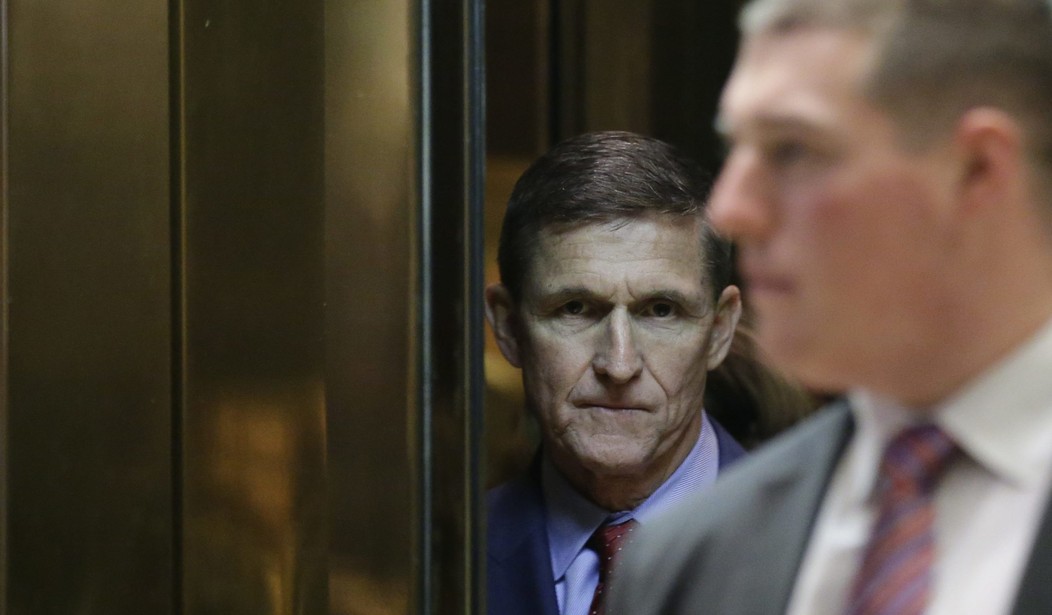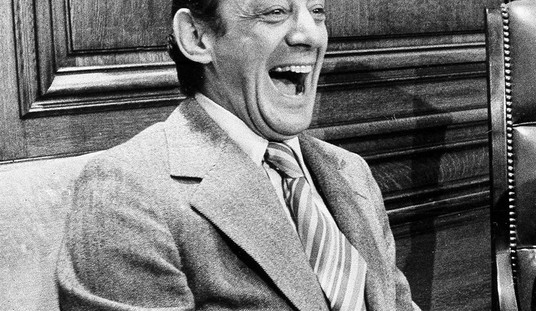WASHINGTON — President Trump’s national security advisor, Michael Flynn, stepped down late Monday after only three weeks on the job in the wake of reports that he had discussed sanctions with Russia’s ambassador and could be vulnerable to Kremlin blackmail.
Trump named Flynn’s retired Lt. Gen. Joseph Keith Kellogg, Jr., as the acting national security advisor. Kellogg is a former director of the Command, Control, Communications, and Computers Directorate of the Joint Chiefs of Staff.
Gen. David Petraeus, who was at one point a candidate for secretary of State, is reportedly visiting the White House on Tuesday. The former CENTCOM commander and CIA director testified on Capitol Hill at the beginning of the month that “we especially need Muslim allies” and that Trump’s travel ban could be counterproductive. “Our Muslim country partners are the ones who are on the front lines and it is, again, a struggle within their civilization, even more than it is between our civilizations — and we don’t want to heighten the differences between those civilizations,” Petraeus told the House Armed Services Committee.
National security advisor is not a position that requires Senate confirmation, so Trump can fill the position as quickly as he likes.
Flynn, a retired three-star Army general and former head of the Defense Intelligence Agency, campaigned for Trump and spoke at the Republican National Convention. On Dec. 29, after the president-elect appointed Flynn as the incoming national security advisor, then-President Obama levied additional sanctions on Russia in response to the intelligence community finding that the Kremlin waged an influence operation, including hacking, against the U.S. presidential election. That same day, Flynn spoke with Russian ambassador Sergey Kislyak.
Flynn claimed he and Kislyak exchanged holiday greetings and didn’t talk about sanctions, but soon after their conversation Russian President Vladimir Putin raised eyebrows by announcing he wouldn’t retaliate for Obama’s expulsion of Russian diplomats. Vice President Mike Pence also publicly denied that sanctions were discussed on the call.
The Washington Post and New York Times both reported that Flynn did talk sanctions with the Russian envoy, information reportedly gleaned from intelligence services’ transcripts. The Post reported today that Sally Yates, the acting attorney general recently fired by Trump for refusing to defend his travel ban, had warned the White House while still at the Justice Department that Flynn was not telling the truth about his conversations with Russian officials and was vulnerable to Kremlin blackmail.
In a statement released by the White House, Flynn said that during the transition he “held numerous phone calls with foreign counterparts, ministers, and ambassadors” to “facilitate a smooth transition and begin to build the necessary relationships between the president, his advisors and foreign leaders.”
“Unfortunately, because of the fast pace of events, I inadvertently briefed the vice president elect and others with incomplete information regarding my phone calls with the Russian ambassador. I have sincerely apologized to the president and the vice president, and they have accepted my apology,” Flynn said.
“I am tendering my resignation, honored to have served our nation and the American people in such a distinguished way. I am also extremely honored to have served President Trump, who in just three weeks, has reoriented American foreign policy in fundamental ways to restore America’s leadership position in the world.”
Flynn further declared Trump’s administration would “go down in history as one of the greatest presidencies in U.S. history.”
White House counselor Kellyanne Conway told MSNBC earlier Monday that Flynn “does enjoy the full confidence of the president.”
“General Flynn has said he can’t recall and that he had about 30 phone calls with, I guess, leaders at the time and since then, 70, I’m told, with different leaders,” Conway said. “And I’ll just leave his comments at that.”
“You’re asking me what did he talk about with people when I wasn’t on the phone. So the only way for me to answer that is to tell you what he has said, which is that he can’t recall. And what he informed the vice president at the time, through a conversation, was that he had not, the vice president went out on TV, as you know, in January, and repeated that based on the conversation he had with General Flynn,” Conway added before admonishing the network for covering the Flynn story.
Republican lawmakers tread carefully around the story during the day, as well. Senate Homeland Security and Governmental Affairs Committee Chairman Ron Johnson (R-Wis.) told CNN Monday afternoon that he was sure Trump was “trying to find out what General Flynn told the vice president, what really General Flynn’s recollections were.”
“He wasn’t privy to those conversations either, so he’s probably gathering the facts. I’ve always thought that telling the truth is the best policy,” Johnson said. “…It’s really not my role to advise and consent on this particular position, so I’ll leave that up to the president. He’ll get to the bottom of it, and he’ll make his determination.”
Democrats began the day, though, going for the kill. “This comes on the heels of a troubled past, when he was the head of the DIA,” House Intelligence Committee Ranking Member Adam Schiff (D-Calif.) told MSNBC. “But if this is someone who can’t remember whether he discussed with the Russian ambassador sanctions that the president placed on Russia that very day, that really strains credulity. It’s very hard to believe. And we need a national security adviser that the president can trust, that the American people can trust.”
Schiff said Flynn’s contacts should be within the scope of the Intelligence Committee’s probe into Russia’s covert influence operations in the United States.
“Certainly, if there were contacts between Flynn as a chief surrogate for the Trump campaign and the Kremlin during the campaign, that’s well within our purview,” he said. “If those contacts continued after, and, indeed, the subject of sanctions was raised and then Flynn was misleading about it, that ought to be something that has to be investigated.”









Join the conversation as a VIP Member